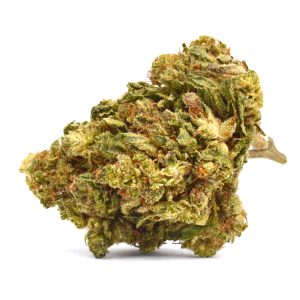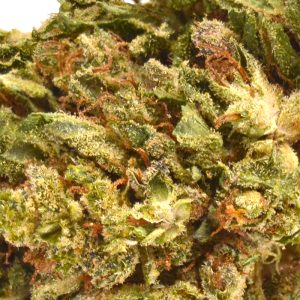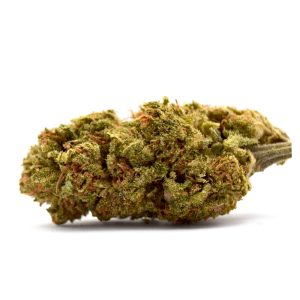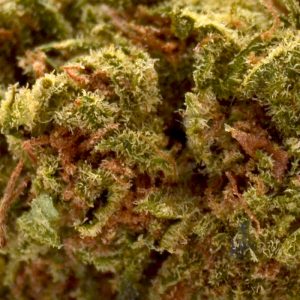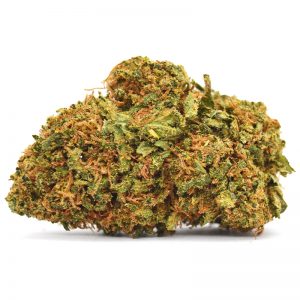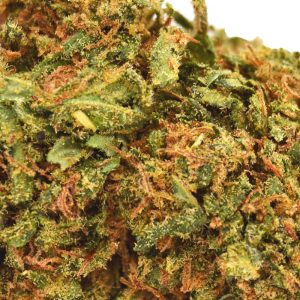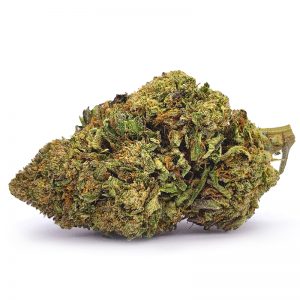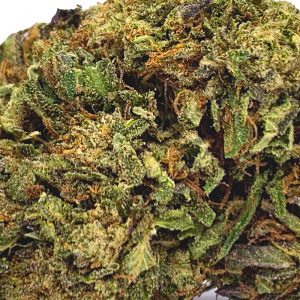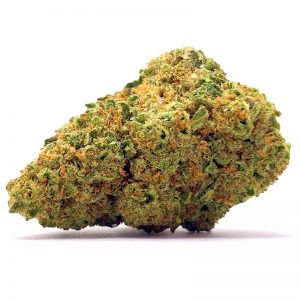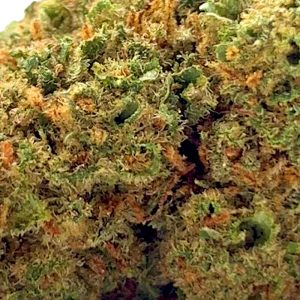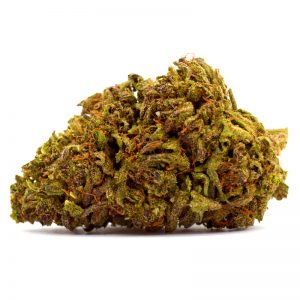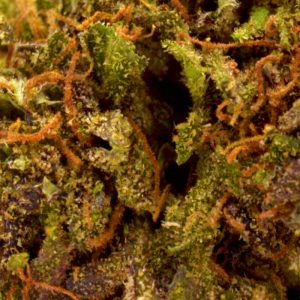Hemp, lemons, and oranges have something in common — they are rich in limonene. This beneficial terpene is found in hemp flower and peels of citrus fruits and gives them their signature smell.
According to science, citrus smells such as orange and lemon can help reduce stress and tension. So, if you’ve noticed that the scent of an orange (or hemp) makes you more relaxed, know that your assumptions have been validated by science.
Last Update: July 12, 2023
Article Summary
- Limonene is an organic terpene prevalent in cannabis and CBD hemp flower. It’s also abundant in lemons, oranges, and other citrus fruits.
- Its flavor in hemp flower ranges from sweet and tangy to bitter, influenced by the presence of other aromatic compounds.
- This terpene has a pleasant aroma that can alleviate stress and tension while bringing relaxing effects on the body and mind.
- Limonene exists in two forms: D-Limonene, highly concentrated in the essential oils of citrus fruits and cannabis, and L-Limonene, found in pine and characterized by a turpentine aroma.
- Mr. Hemp Flower offers several premium CBD flower strains rich in limonene, including Purple Punch, Hawaiian Haze, and Hercules. These strains have limonene in their terpene profile, which contributes to their distinctive flavors and beneficial effects.
- Limonene is associated with pain relief, anti-inflammatory effects, and potential alleviation of heartburn and gastric reflux symptoms.
- This terpene has a refreshing citrus scent found in various everyday items, from fruits to cleaning products.
What is Limonene?
Limonene is an organic chemical compound, also known as terpene. This colorless liquid is naturally present in the essential oils of cannabis and various plants, herbs, and fruits.
After myrcene, limonene is the most prevalent terpene in cannabis and CBD hemp flower.
This aromatic compound is secreted alongside THC and CBD in the trichomes of the hemp flower. Together with cannabinoids, terpenes like limonene determine the smell and flavor of a specific strain.
When limonene, and other terpenes and cannabinoids, are taken together, they increase the healing power of hemp.
Two Types of Limonene: D-Limonene and L-Limonene
Limonene is mainly formed in the sticky resin glands of plants and is subdivided into two stereo-isomers — the same molecules with different structures — that have their distinctive flavor:
- D-Limonene: Found in large concentrations in the essential oils of citrus fruits. This type of limonene is also present in the cannabis plant.
- L-Limonene: Found in pine, it presents a turpentine aroma.
There are two methods used to obtain limonene from the peel of orange, and both influence the amount of terpenes:
- Centrifugal separation: The final product is an essential oil composed of 90% limonene.
- Steam distillation: Lower percentage of limonene compared to the first method.
CBD Hemp Flower Strains Rich in Limonene
Here are some of our best limonene-rich hemp flower strains.
1. Purple Punch CBD Flower
Purple Punch CBD flower is an indica hybrid strain that brings a delightful blend of sweet and tart grape flavors.
This beloved nighttime companion has a notable terpene composition that includes myrcene (.65%), caryophyllene (.32%), humulene (.08%), and limonene (.04%). Together, these terpenes create fresh berry and plum flavors with lingering tartness.
Purple Punch is rich in CBD (11.79%), CBG, and CBC and provides a soothing, full spectrum experience. These features make this hemp flower ideal for sleep and relaxation without the THC intoxication.
2. Hawaiian Haze CBD Flower
Hawaiian Haze CBD flower is a sativa-dominant strain known for its uplifting effects that inspire social engagement and creativity. The strain’s light, fragrant buds present floral and tropical fruit notes that promote relaxation.
This hemp flower boasts an excellent terpene profile, rich in alpha-pinene (.11%), beta-myrcene (.22%), and limonene (.02). Although present in minuscule amounts, limonene gives the strain citrus undertones, amplifying its refreshing sensory experience.
Beyond flavor, these terpenes, along with potent CBD content, contribute to a unique “entourage effect,” promoting tranquility, sociability, and focus. Thanks to its sativa-dominant influence, Hawaiian Haze is the ideal companion for daytime use.
3. Hercules CBD Flower
Hercules Hemp Flower is an excellent sativa-dominant strain with a potent terpene profile that exudes floral, herbal, and oak fragrances.
This strain is rich in terpinolene, limonene, and pinene, which enhance the strain’s robust potency. Hercules CBD flower contains 11% CBD and less than 0.3% THC, which along with terpenes, contribute to the entourage effect of this hemp flower.
This hemp flower is best used during the daytime to stimulate focus, elevate mood, and relieve stress. It’s an excellent choice for people seeking a stimulating daytime experience without drowsiness.
What Does Limonene Smell Like?
This terpene has a refreshing citrus scent that’s difficult to miss because it’s everywhere around you. From fruit and candy to cleaning products, perfumes, and lotions, its sweet lemon scent is irresistible.
You can smell its invigorating scent each time you cut a lemon or an orange.
What Does Limonene Taste Like?
Limonene has a typical citrus-like flavor that can range from sweet and tangy to bitter. This terpene’s flavor profile can change depending on the presence of other aromatic compounds.
Natural Sources of Limonene
Limonene gives herbs and fruits their distinctive flavors and scents. Here are other natural sources of this terpene:
- Cannabis Sativa
- Peel of citrus fruits (grapefruit, lemon, lime, mandarin and oranges)
- Mint
- Rosemary
- Pine
- Palo Santo
- Elemi
- Caraway
Uses & Benefits of Limonene
Limonene stands out as one with exceptional uses and benefits among all primary and secondary terpenes in nature.
These are the most common therapeutic properties of this terpene.
Limonene for Pain
Limonene is a known aromatherapy agent that can help reduce sensitivity to pain in mice [1].
It can be touted for nausea and pain in pregnant and breastfeeding women, but some research shows that it can cause uterine contractions (in mice). So, it’s advised to avoid use when pregnant until more research is done [2].
Anti-Inflammatory Properties
Some cases of skin diseases don’t respond well to prescribed medications, so people are seeking natural alternatives.
Studies suggest that if applied topically, D-limonene reduces pro-inflammatory cytokine production (cells responsible for some dermatitis symptoms). This could be helpful for wounds and healing of the skin [3, 4].
Heartburn and Gastric Reflux
There’s some anecdotal evidence that D-limonene could help with heartburn and gastric reflux, but official studies are needed.
In one human study, 19 people were given heartburn medications and limonene. Seventeen people noticed the heartburn symptoms were gone after taking only limonene once a day for two weeks [5].
A 2022 trial that took place under a U.S. patent concluded that participants with GERD (gastroesophageal reflux disease (GERD) benefited “significantly” from taking d-limonene [6].
It’s believed that limonene coats the esophagus, which may help neutralize stomach acid, but this is only a theory.
Immune System Effects
A study on healthy mice treated with limonene showed a significant increase in antibodies production when exposed to foreign antigens. Limonene also stimulated the immune cells in the pancreas and intestines.
Stress Relief
Like other terpenes, limonene’s relaxing effects can be a great natural alternative for relieving stress.
Stress can also exacerbate chronic pain, cause a further disbalance in the sleep cycle, accelerate aging, and trigger the release of cortisol, the stress hormone that can disrupt the parasympathetic nervous system.
Several studies showed that this compound showcases anti-stress properties and can help with symptoms of anxiety [7].
Limonene for Mood Disorders
Research shows that inhalation of terpenes vapor, particularly limonene, can increase the metabolic conversion of dopamine and serotonin in the brain linked with anxiety and depression.
This could be one of the reasons why limonene and other terpenes work so well for aromatherapy, as they may help lower tension and symptoms of anxiety [8].
Common Uses of Limonene
Aside from aromatherapy, limonene’s vibrant and refreshing aroma finds extensive application in an array of products. It’s added to foods, cleaning products, desserts, and candles to provide a “citrusy” flavor and aroma.
Limonene is extracted through the process of hydrodistillation. This process includes soaking the fruit peels in water and heating them until the terpene’s volatile molecules are released. This could be through steam or condensation [9].
This terpene is also incorporated in products such as soaps, perfumes, shampoos, lotions, laundry detergents, and air fresheners.
Due to its strong scent, it’s an active ingredient in several natural insect repellants. Besides, limonene supplements, available in capsule and liquid form, are promoted for their potential therapeutic effects.
Limonene Entourage Effect
Like other terpenes, limonene could play a part in the “entourage effect.” The theory of the entourage effect suggests that terpenes and cannabinoids work in synergy to create a more potent effect [10].
This is the reason why full spectrum products like CBD flower, which are naturally rich in terpenes and cannabinoids, are touted as a better option than isolates.
The entourage effect is supported across multiple studies, but it remains a theory still to be proven.
Risks and Side Effects of Limonene
The Food and Drug Administration (FDA) considers limonene a safe food additive and flavoring agent. Research also confirms that taking this terpene as a supplement orally is perfectly safe [11].
But there are a few things you need to keep in mind when using this organic compound.
It’s wise to avoid direct application to the skin because it may cause skin irritation in sensitive individuals. So, please be cautious when handling essential oils [12].
As mentioned earlier, limonene is often used as a concentrated supplement. Despite its safety, it’s important to avoid taking high doses of limonene to eliminate potential adverse effects.
Some of the most common side effects of this terpene are:
- Allergic reactions
- Asthma
- Nausea
- Vomiting
- Diarrhea
Does Limonene Get You High?
No, limonene doesn’t get you high.
Limonene is a terpene, not a cannabinoid. It does have an impact on your mood, stress levels, and energy, but it shouldn’t produce traditional intoxicating feelings.
FAQ on Limonene
What does limonene do for the body?
Limonene offers a lot of health benefits. This terpene shows anti-inflammatory, antifungal, antibacterial and antioxidant effects.
Several studies show the potential of limonene for alleviating symptoms in conditions such as anxiety and depression.
Limonene can also boost the immune system, help relieve pain, heartburn, damaged skin, reduce inflammation in the gut, dissolve gallstones and much more.
Is limonene safe? Is it a carcinogen?
Yes, limonene is safe if taken in food amounts. No, Limonene is not a known carcinogen. Also, long-term, medicinal amounts of limonene administered orally for up to one year appears to be safe for most people.
What are the risks of using limonene terpenes?
Aside from few side-effects, such as skin irritation and nausea, d-limonene shows no serious risk. Limonene is considered a safe ingredient by the FDA.
What strains are high in limonene?
Limonene is mostly found in common sativa strains, but it can be present in abundance in some cannabis indica strains as well.
Cannabis strains high in limonene are Lemon Kush and Skunk, while hemp flowers high in limonene are Hawaiian Haze and Purple Punch.
Does Limonene Have Any Side Effects?
D-limonene is considered a safe compound by the Food and Drug Administration (FDA), only if used in food amounts. Dosage is key in avoiding limonene side-effects, but limonene appears to be safe if used orally for up to a year. Possible side effects of limonene include:
- Skin irritation — may happen after long-term exposure of pure limonene on the skin.
- Nausea — if used in very high doses, limonene can cause nausea.
- Vomiting
- Diarrhea
What kind of applications limonene terpene is used for?
Limonene is used for various applications, including in foods, beverages, and chewing gum added for flavoring.
Other applications include aromatherapy for stress release, as well as medicinal uses to treat a cold, flu, bronchitis, sinusitis, and more.
Limonene can be used as a fragrance, paint remover, and added to cleaning products.
Mechanisms of Action - Biosynthesis of Limonene
This terpene has evolved from geranyl pyrophosphate (GPP), also known as geranyl diphosphate (GDP) which is one of the two main components of alpha-pinene.
So, the biosynthesis starts with isopentenyl diphosphate (isopentenyl pyrophosphate or IPP) and dimethylallyl diphosphate (dimethylallyl pyrophosphate or DMAPP) being combined to form geranyl diphosphate.
Following a three-step route, geranyl diphosphate is cyclized to limonene.


